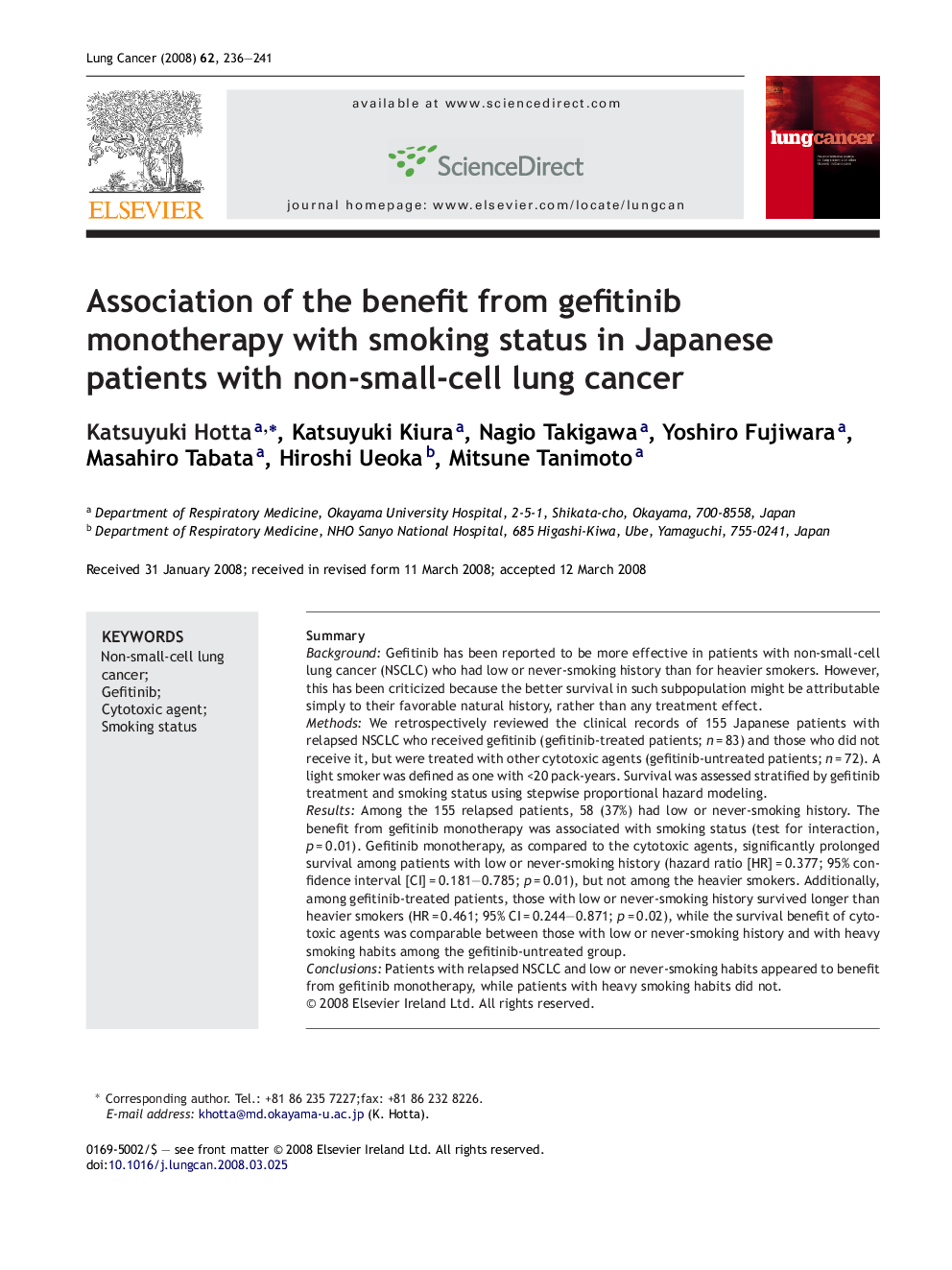| Article ID | Journal | Published Year | Pages | File Type |
|---|---|---|---|---|
| 2143435 | Lung Cancer | 2008 | 6 Pages |
SummaryBackgroundGefitinib has been reported to be more effective in patients with non-small-cell lung cancer (NSCLC) who had low or never-smoking history than for heavier smokers. However, this has been criticized because the better survival in such subpopulation might be attributable simply to their favorable natural history, rather than any treatment effect.MethodsWe retrospectively reviewed the clinical records of 155 Japanese patients with relapsed NSCLC who received gefitinib (gefitinib-treated patients; n = 83) and those who did not receive it, but were treated with other cytotoxic agents (gefitinib-untreated patients; n = 72). A light smoker was defined as one with <20 pack-years. Survival was assessed stratified by gefitinib treatment and smoking status using stepwise proportional hazard modeling.ResultsAmong the 155 relapsed patients, 58 (37%) had low or never-smoking history. The benefit from gefitinib monotherapy was associated with smoking status (test for interaction, p = 0.01). Gefitinib monotherapy, as compared to the cytotoxic agents, significantly prolonged survival among patients with low or never-smoking history (hazard ratio [HR] = 0.377; 95% confidence interval [CI] = 0.181–0.785; p = 0.01), but not among the heavier smokers. Additionally, among gefitinib-treated patients, those with low or never-smoking history survived longer than heavier smokers (HR = 0.461; 95% CI = 0.244–0.871; p = 0.02), while the survival benefit of cytotoxic agents was comparable between those with low or never-smoking history and with heavy smoking habits among the gefitinib-untreated group.ConclusionsPatients with relapsed NSCLC and low or never-smoking habits appeared to benefit from gefitinib monotherapy, while patients with heavy smoking habits did not.
